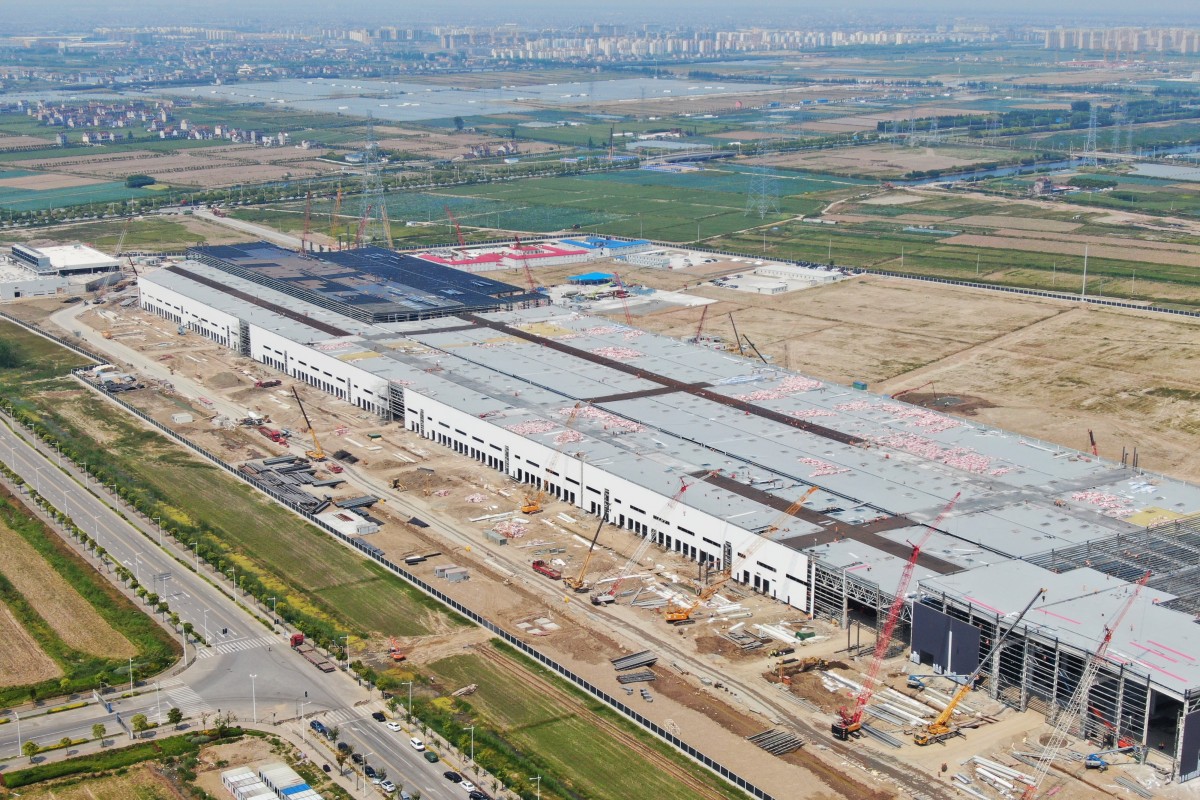Lingang, home to Tesla’s first factory outside US, secures 24 deals worth US$1 billion, but investment ‘far from enough’, analyst says
Tesla suppliers SAS Automotive Systems and Saint-Gobain Sekurit among companies signing on
We will be innovative in policymaking, FTZ administration says
Shanghai’s Lingang free-trade zone, home to Tesla’s Gigafactory 3, said on Thursday it had signed 24 automotive industry-related deals worth a combined 8 billion yuan (US$1.1 billion).
Zhu Zhisong, executive deputy director with the FTZ’s administration, said Shanghai was committed to attracting more car manufacturers and component makers.
“Lingang has a unique position [in creating a car manufacturing industry from scratch], and we will be innovative in policymaking,” Zhu said at a signing ceremony. “More special policies will be announced to support the growth of automobile firms at Lingang.”
He did not elaborate on the incentives the FTZ would offer to bolster its car manufacturing sector.
“It is an initial step towards building an automobiles industrial zone, since 8 billion yuan worth of investments is far from enough to create a complete industry,” said Peter Chen, a Shanghai-based engineer with US car components maker TRW.
“Quite a big number of companies is expecting more tax incentives and good infrastructure at Lingang before they decide to move there.”
Two of the deals signed were with Tesla suppliers SAS Automotive Systems, a cockpit systems provider, and Saint-Gobain Sekurit, which makes automotive glass.
The Palo Alto, California-based carmaker is the first to set up a wholly-owned factory in China, its first outside the United States, and work on the US$2 billion facility started earlier this year. The Gigafactory will start manufacturing Tesla’s Model 3 cars from next month, as well as its Model Y electric compact crossover utility vehicle in the future.
China’s new-energy vehicle industry is grappling with a sharp decline in sales after about five years of buoyant growth. In August, sales slumped by 15.8 per cent from a year ago to 85,000 units. The drop followed a 4.7 per cent year-on-year fall in July to 80,000 units.
The China Association of Automobile Manufacturers, a government-backed industry consortium, recently slashed its forecast for new-energy vehicle sales this year to 1.5 million units from 1.6 million.
Lingang, an untapped area connected with the Yangshan deep water port, covers 800 sq km. Of these, 119.5 sq km were included in Shanghai’s free-trade zone last month amid a renewed push to build a free marketplace on par with Hong Kong.
The city expects to offer zero import tariffs on goods in the FTZ, and was awaiting a go-ahead from the General Administration of Taxation, said local officials with knowledge of the matter. Last week, Lingang announced cash subsidies of up to US$8.46 million to financial institutions setting up branches in a new area within the expanded FTZ.
Shanghai launched mainland China’s first FTZ in 2013, but it has failed to live up to expectations, owing mainly to the slow pace of policy implementation. The inclusion of Lingang represents a renewed effort to open up the market and attract foreign capital and talent.



